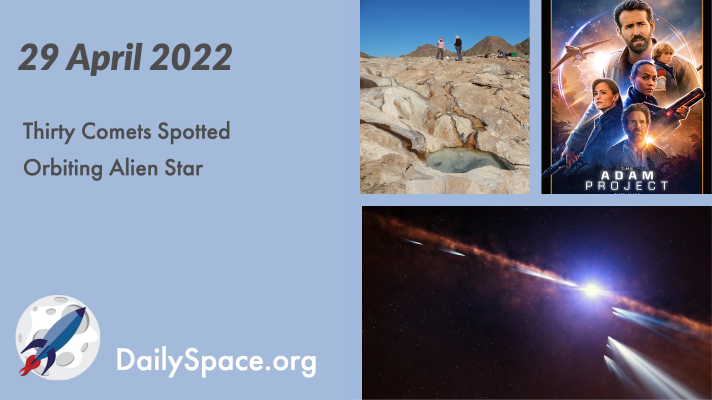
May 2, 2022 | Asteroids, Astrobiology, Comets, Daily Space, Earth, Exoplanets, JWST, Moon, Our Solar System, Review, Rockets, Space China
Using data from TESS, a new paper presents evidence for the discovery of thirty potential comets orbiting in the Beta Pictoris system. Plus, astrobiology research, water on the Moon, solar system formation, and a review of “The Adam Project” starring Ryan Reynolds.
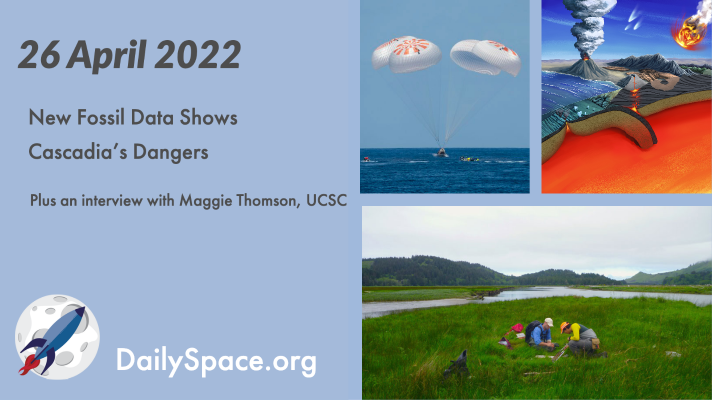
Apr 27, 2022 | Asteroids, Astrobiology, Climate Change, Crewed Space, Daily Space, Earth, Guest Interview, Lucy, Mars, OSIRIS-REx, Rockets, Space China, Spacecraft, SpaceX, Starlink
An analysis of sediment core samples taken at the Salmon River Estuary in Oregon provides evidence that the massive 1700 Cascadia earthquake caused 15 meters of slip along the shoreline, which lead to over a meter of coastal subsidence. Plus, all the rocket launches, a few mission updates, making Mars bricks with urea, and an interview with Maggie Thompson from UC Santa Cruz about using methane as a biosignature.
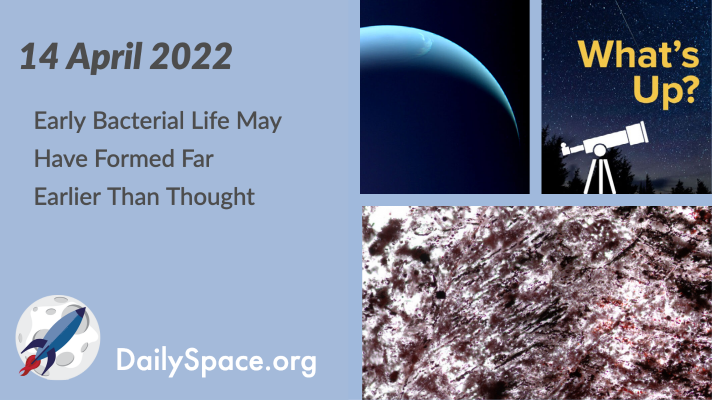
Apr 15, 2022 | Asteroids, Astrobiology, Comets, Crewed Space, Daily Space, Earth, Galaxies, JWST, Lucy, Mars, Mercury, Moon, Neptune, Saturn, Sky Watching, Stars, Supermassive Black Holes, Venus
An analysis of microscopic features in rocks from the Nuvvuagittuq Supracrustal Belt in Quebec, Canada, which date back between 3.75 and 4.28 billion years, finds evidence of possible microbial life. Plus, a supermassive black hole precursor, temperatures on Neptune, check-ins with various spacecraft, and our weekly What’s Up segment.
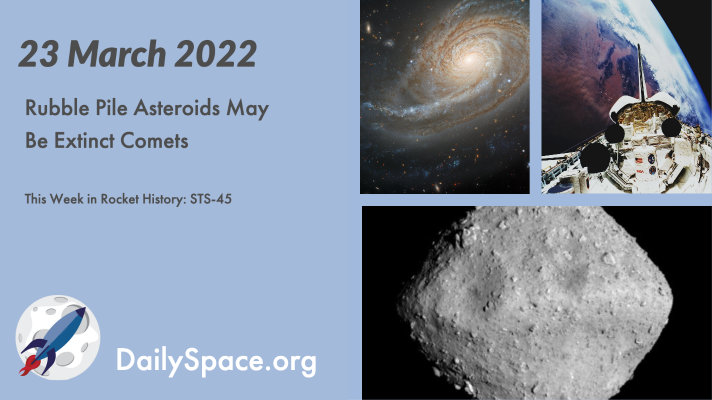
Mar 24, 2022 | Asteroids, Cassini, Crewed Space, Daily Space, Galaxies, Gemini North, JAXA, Random Space Fact, Rockets, Saturn, Science, Space History, Spacecraft
After detecting high levels of organic matter using remote sensors at the asteroid Ryugu, numerical models show that it’s possible that rubble pile asteroids are actually extinct comets. Plus, the Cosmic Optical Background, Enceladus’s tiger stripes, and this week in rocket history, we look back at STS-45.
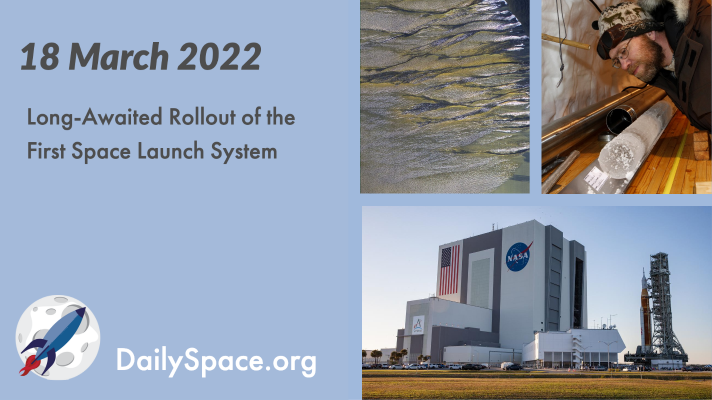
Mar 21, 2022 | Artemis, Asteroids, Climate Change, Crewed Space, Daily Space, Earth, ESA, JWST, Mars, Rockets, ROSCOSMOS, Soyuz, Spacecraft, SpaceX
The first SLS was rolled out of the Vehicle Assembly Building (VAB) High Bay 3 on the Crawler Transporter on March 17, 2022, and is the first lunar rocket to emerge from the VAB since Apollo 17’s Saturn V in 1972. Plus, an asteroid impact, climate change, ancient volcanoes, spring on Mars, and a new Deep Sky Network dish.
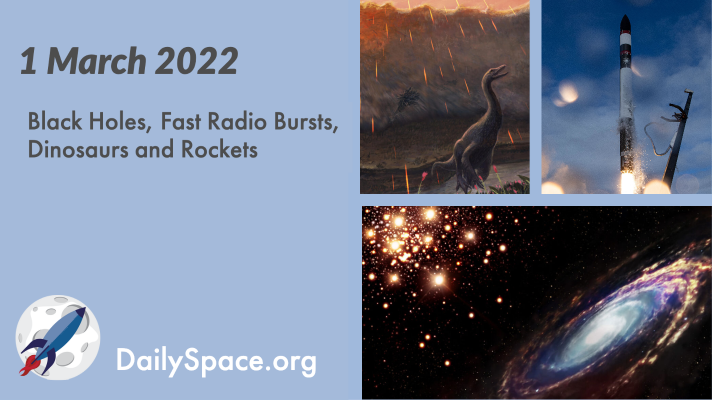
Mar 2, 2022 | Asteroids, Black Holes (Stellar), Crewed Space, Daily Space, Earth, Fast Radio Bursts, Neutron Stars / Pulsars, Rocket Lab, Rockets, Space China, SpaceX, Starlink, Supermassive Black Holes
As we return from our mini-break, we bring you some highlights of stories that happened while we were away, including black holes spiraling toward each other, the possible origin of a fast radio burst, and more information on the demise of the dinosaurs. Plus, Erik Madaus brings us updates on quite a few rocket launches.








 We record most shows live, on Twitch. Follow us today to get alerts when we go live.
We record most shows live, on Twitch. Follow us today to get alerts when we go live.